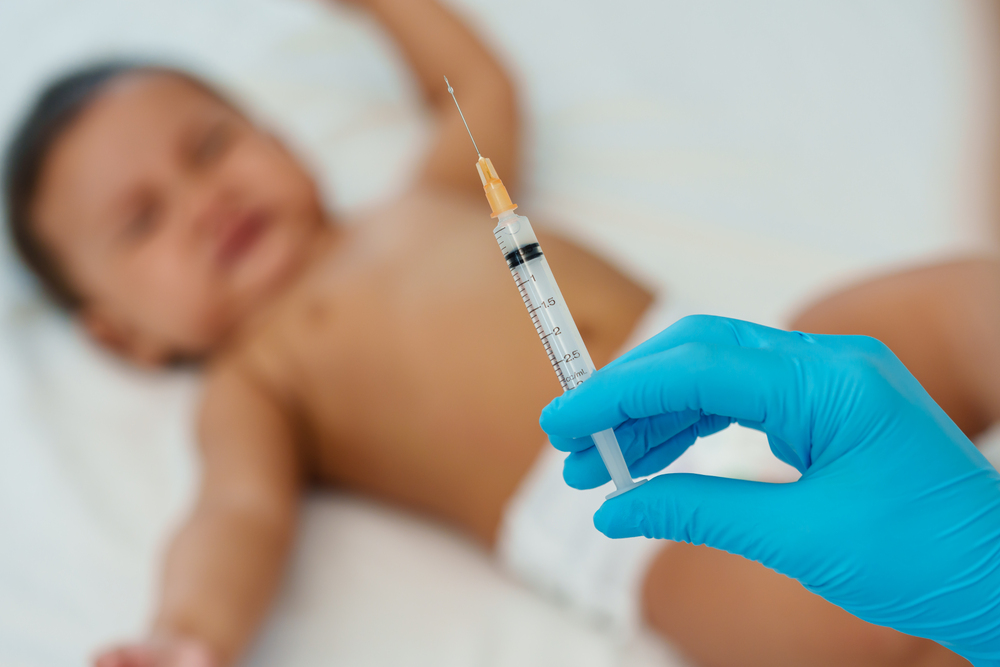Moderna has recently put a halt to its clinical trial of an mRNA-based vaccine for Respiratory Syncytial Virus (RSV) among children due to serious safety concerns. This announcement follows an admission from the FDA that enrollment in similar trials had been suspended, reflecting increasing apprehension about potential health risks for children under the age of two. The halted trial, named mRNA-1365-P101, aimed to assess the vaccines’ safety and effectiveness in protecting infants and toddlers against RSV. The news came to light during a recent meeting of the FDA’s Vaccines and Related Biological Products Advisory Committee (VRBPAC), where experts acknowledged the complexity and gravity of the situation, with many inquiries still unanswered. As noted by Dr. Henry Bernstein, a pediatric expert, these developments have created an intricate puzzle of safety concerns that require careful navigation.
The mRNA-1365-P101 trial was designed to evaluate the safety, tolerability, and immune response elicited by two specific mRNA vaccines, mRNA-1345 and mRNA-1365. However, the trial had to be paused after significant safety signals were discovered. According to a briefing document, the FDA received notifications regarding the suspension of the trial after an observed increase in severe RSV-associated lower respiratory tract infections (LRTIs) among vaccinated infants. Specifically, a concerning trend was identified, with disproportionate cases of severe RSV-LRTI occurring among the vaccine group as opposed to control participants. This data signaled potential risks related to Vaccine-Associated Enhanced Respiratory Disease (VAERD), reviving fears about the safety of deploying mRNA vaccines in young children.
The complications surfaced primarily during a younger cohort phase of the study that included infants aged 5 to less than 8 months. Within this group, five severe cases of RSV-LRTI were recorded among those who received lower doses of the experimental vaccines, in stark contrast to only one case in the placebo cohort. This stark imbalance raises significant questions about the efficacy and safety of the mRNA vaccines in this age group, particularly when symptomatic RSV infections led to severe conditions in 26.3% of vaccinated infants compared to just 8.3% in those who received a placebo. Such figures prompted immediate action from Moderna, including the ceasing of enrollment and dosing in the trial across all participant age groups globally.
The decision to pause the trial rests on a pre-established safety criterion that deals specifically with severe lower respiratory tract infections confirmed by RSV-positive PCR tests. After the threshold of two severe cases was crossed among vaccinated participants, the FDA ordered a clinical hold, emphasizing concerns over potential “unreasonable and significant risk of illness or injury.” This decision underscores the severe implications for ongoing studies targeting infants aged 5 to under 24 months and indicates that regulatory bodies are placing considerable weight on potential safety hazards associated with the vaccine.
In response to these developments, while both Moderna and the FDA appear to be advocating for a careful and precautionary approach, external critiques suggest that the focus should instead shift to the broader implications of a “vaccine-first” strategy. This increasingly critical public sentiment reflects growing skepticism about the deployment of new vaccine technologies, particularly in vulnerable pediatric populations. Experts like Dr. Arnold Monto from the University of Michigan have underscored the imperative need for rigorous scrutiny of any RSV vaccines using the mRNA platform, suggesting that the unique risks posed by these vaccines necessitate individualized investigations rather than blanket approvals or assumptions.
Ultimately, while the intention behind developing an RSV vaccine for infants and toddlers is fundamentally rooted in public health and safety, the risks identified in Moderna’s trial raise profound concerns about the application of novel mRNA technology in this demographic. The balance between vaccine development and the safety of vulnerable populations remains precarious, underscoring the importance of transparent and thorough investigation into any adverse events associated with these new medical interventions. As further information accumulates and analyses begin, stakeholders and regulatory agencies must navigate this complex landscape with a commitment to safeguarding children’s health while also fostering innovative advancements in vaccine development.

